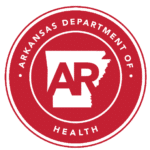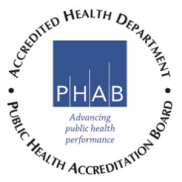
Reportable by Providers and Laboratories
What is Measles?
Measles, or rubeola, is a highly contagious, acute viral infectious disease caused by the measles virus. Some people think of measles as just a rash and fever that clears up in a few days; however, measles can cause serious health complications, especially in children younger than 5-years-old.
The best protection against measles is the measles, mumps, and rubella (MMR) vaccine. The MMR vaccine provides long-lasting protection against all strains of measles.
Transmission
Measles spreads through the air when an infected person coughs or sneezes. Measles can live for up to 2 hours in an airspace after an infected person leaves an area. If you have measles, up to 90% of the people close to you, who are not protected will also become infected.
Symptoms
Symptoms of measles typically appear around 7 to 14 days after exposure to the virus. Common measles symptoms include:
- High fever
- Cough
- Runny nose
- Red, watery eyes (conjunctivitis)
- Rash that starts on the face and spreads down the body
Measles can cause serious health complications, especially in children younger than 5 years old. Common complications are ear infections and diarrhea. Some people are at a higher risk of experiencing severe complications, including pneumonia and encephalitis.
Patient Management
There is no specific antiviral treatment for measles. Medical care is supportive to help relieve symptoms and address related complications.
- Severe measles cases among children, such as those who are hospitalized, should be treated with vitamin A.
- Infected people should be isolated for 4 days after they develop a rash; airborne precautions should be followed in healthcare settings. For more guidance, please refer to CDC Interim Infection Prevention and Control Recommendations for Measles in Healthcare Settings.
Prevention
The most effective way to prevent measles is through vaccination.
MMR efficacy against measles
- Two doses of measles vaccine are 97% (range: 67% to 100%) effective at preventing measles.
- One dose is 93% (range: 39% to 100%) effective at preventing measles.
Who Should Get MMR Vaccine
- Children
- CDC recommends all children get two doses of MMR (measles-mumps-rubella) vaccine.
- First dose at 12 through 15 months of age
- Second dose at 4 through 6 years of age.
- Children can receive the second dose earlier as long as it is at least 28 days after the first dose.
- Students at post-high school educational institutions
- Students at post-high school educational institutions who do not have presumptive evidence of immunity need two doses of MMR vaccine, separated by at least 28 days.
- Adults
- Adults who do not have presumptive evidence of immunity should get at least one dose of MMR vaccine. This includes adults who were born after 1952 and were vaccinated prior to 1968 with either an inactivated (killed) measles vaccine or a measles vaccine of unknown type. This recommendation is intended to protect those who may have received the killed measles vaccine, which was available from 1963 to 1967 and was not effective.
- Certain adults may need 2 doses. Adults who are going to be in a setting that poses a high risk for measles or mumps transmission should make sure they have had two doses separated by at least 28 days. These adults include:
- Students at post-high school education institutions
- Healthcare personnel
- International travelers
- International travelers
- People 6 months of age and older who will be traveling internationally should be protected against measles. Before any international travel:
- Infants 6 through 11 months of age should receive one dose of MMR vaccine. Infants who get one dose of MMR vaccine before their first birthday should get two more doses (one dose at 12 through 15 months of age and another dose separated by at least 28 days).
- Children 12 months of age and older should receive two doses of MMR vaccine, separated by at least 28 days.
- Teenagers and adults who do not have presumptive evidence of immunity against measles should get two doses of MMR vaccine separated by at least 28 days.
- People 6 months of age and older who will be traveling internationally should be protected against measles. Before any international travel:
- Healthcare personnel
- Healthcare personnel should have documented presumptive evidence of immunity, according to the recommendations of the Advisory Committee on Immunization Practices [48 pages]. Healthcare personnel without evidence of immunity should get two doses of MMR vaccine, separated by at least 28 days.
- Women of Childbearing Age
- Women of childbearing age should check with their doctor to make sure they are vaccinated before they get pregnant. Women of childbearing age who are not pregnant and do not have presumptive evidence of immunity should get at least one dose of MMR vaccine.
- It is safe for breastfeeding women to receive MMR vaccination. Breastfeeding does not interfere with the response to the MMR vaccine, and the baby will not be affected by the vaccine through breast milk.
Public
Healthcare Providers
- Clinical Overview of Measles | Measles (Rubeola) | CDC
- Fact Sheet | Spanish
- Report a case of this disease by fax
- Submit a specimen for laboratory testing
- Learn more information about disease reporting
- Diagnosis Decision Tree for Providers
- Think Measles! Brief Infection Control Guidance
- Example of Measles Contact Line List
Laboratories
- Laboratory Testing for Measles | Measles (Rubeola) | CDC
- Report a case of this disease
- Submit a specimen for laboratory testing
Resources
- ADH List of Local Health Units
- CDC’s Pink Book
- Communicable Disease Reporting Form
- Mandatory Reportable Disease List
- Measles Diagnosis Decision Tree for Providers
- Measles (one-pager)
- Measles Signage
- Measles Vaccination Myths and Facts (IDSA)
- Measles Videos | Measles (Rubeola) | CDC
- MMR Vaccine Information Statement
- MMRV Vaccine Information Statement
- Questions About Measles | Measles (Rubeola) | CDC
- Rules and Regulations
Contact Information
Outbreak Response
4815 W. Markham St., Slot 77
Little Rock, AR 72205
Phone: 501-661-2381
Fax: 501-661-2428


